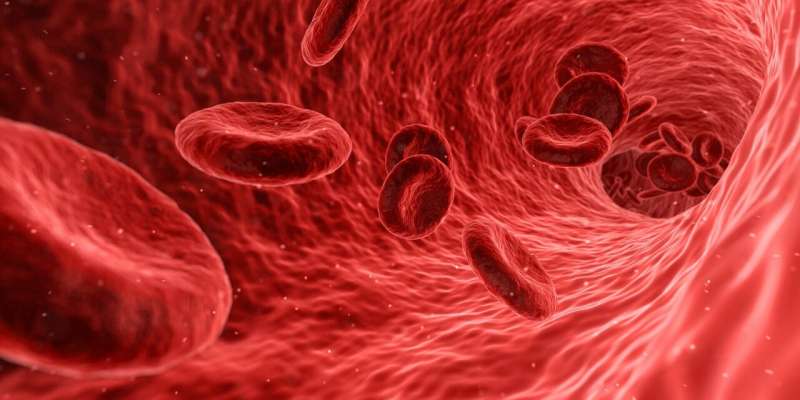Blood samples to help select the right early phase clinical trials for cancer patients

Scientists could help match cancer patients with no other treatment options to clinical trials with experimental medicines, by analysing the genetic faults in a sample of their blood, according to research published in Nature Medicine today.
The researchers, funded by Cancer Research UK, The Christie Charity, AstraZeneca and the NIHR Manchester Biomedical Research Centre (BRC), demonstrated in their feasibility study that a blood test can be carried out and analysed in a timeframe that can help clinicians select a matched, targeted treatment.
Currently, enrolment to trials depends on a patient's type of cancer or genetic data obtained from an invasive tumour biopsy, which is often months or years old and may not represent a patient's current disease due to their tumours' evolutionary changes over time.
Scientists from the Cancer Research UK Manchester Institute at The University of Manchester, showed that a small volume of blood can contain up-to-date genetic information about a patient's cancer to inform treatment choices. In this feasibility study of the first 100 patients, 11 were enrolled onto an available and molecularly matched clinical trial.
Dr. Matthew Krebs, the lead clinician of the study from The University of Manchester and The Christie Hospital NHS Foundation Trust, said: "This study is bringing clinicians and scientists together to develop a new approach to treating patients with advanced cancers.
"Historically, patients who have exhausted other options but are still reasonably well might access a clinical trial based on their cancer type, but without that new therapy being targeted to their tumour's particular genetic profile. Now, that paradigm is shifting toward personalised medicine. By understanding the genetic faults underpinning a patient's cancer from a blood test, as demonstrated in this study, this raises the hope of matching more patients to a specific targeted clinical trial treatment with better chance of benefit."
In the first of the two-part trial, called TARGET, the researchers were able to collect, process and analyse blood samples from 100 patients in the Manchester area.
Professor Caroline Dive, the laboratory lead author of the study from the Cancer Research UK Manchester Institute, said: "Now that we have demonstrated the feasibility of matching clinical trials for patients who have not responded to previous treatments by analysing the tumour DNA in their blood, we are working to improve our blood testing approach. We are making the test more sensitive and adding new elements to it in order to understand more about a patient's disease. We are also taking several blood samples over time to see if a faulty gene(s) is disappearing with treatment, or if there is emergence of a new genetic fault that could lead to treatment resistance. This would allow us to stop a failing treatment and consider new options to stay a step ahead of the disease."
The authors caution that while this study is promising, not every patient will have identifiable and 'druggable' faulty genes in their blood, nor will every patient have the opportunity to receive a treatment tailored to their cancer.
The researchers now hope the second part of TARGET, which is already underway, will show how often the blood test is successful at matching patients to early phase clinical trials and the impact this has on their overall survival. There is also an option of referring patients to other clinical trial sites, if suitable matched trials are available in other parts of the country.
More information: Utility of ctDNA to support patient selection for early phase clinical trials: the TARGET study, Nature Medicine (2019). DOI: 10.1038/s41591-019-0380-z , www.nature.com/articles/s41591-019-0380-z

















